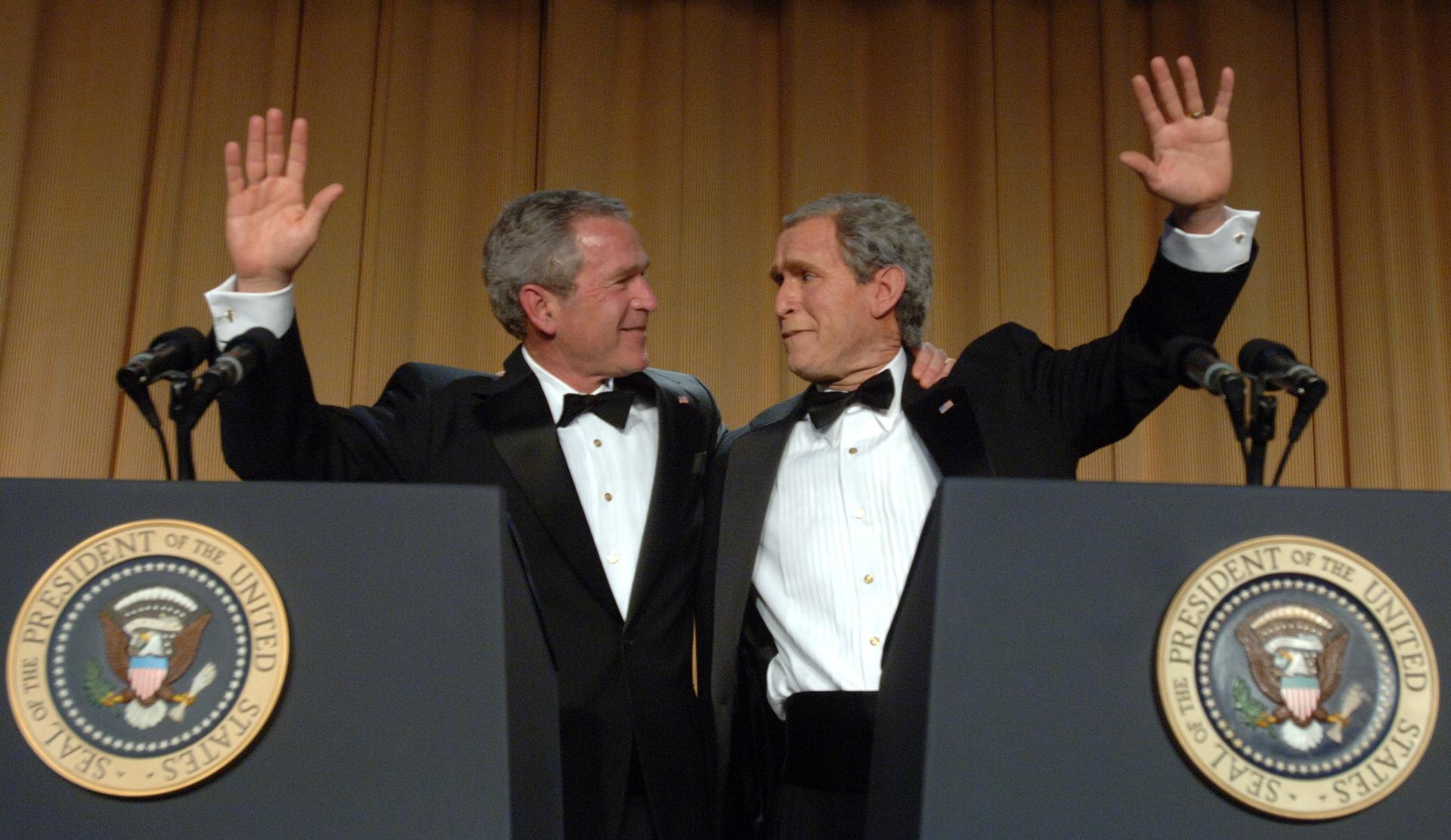Presidential psychopaths? Worrisome personality traits tied to success in office
US President George W. Bush and his inner monologue, played by Steve Bridges, entertain guests at the White House Correspondents’ Dinner April 29, 2006 in Washington, DC.
People with forceful personalities often become successful — including in the presidency. But are their traits linked to a truly pyschopathic personality?
That's the thesis of an Emory University study titled "Fearless dominance and the US presidency: Implications of psychopathic personality traits for successful and unsuccessful political leadership."
The study authors did standardized personality analyses of 42 presidents, up to George W. Bush — although obviously, many of the personality analyses were of the posthumous variety. Researchers then looked for traits that fall under the rubric of pyschopathy.
Perhaps unsurprisingly, the remarkably hard-to-kill Theodore Roosevelt scored highest in "fearless dominance," followed by John F. Kennedy, Franklin D. Roosevelt, Ronald Reagan, Rutherford Hayes, Zachary Taylor, Bill Clinton, Martin Van Buren, Andrew Jackson and George W. Bush.
Read more from GlobalPost: Psychopaths have a different brain structure, study says
It's worth pointing out that pyschopathy probably doesn't mean what you think it means, which is to say that Teddy Roosevelt was actually highly unlikely to have starred in some sort of sepia-toned Gilded Age slasher flick if he hadn't attained the Presidency. (Though God, I would love to see that movie: attention Hollywood.)
According to Scientific American, people with pyschopathic personalities are not usually violent: instead, pyschopathy describes a set of behaviors that suggest the person in question lacks feelings of love and empathy for others, and finds it hard to learn from their mistakes or respond to criticism from others.
They are also rather good at appearing charming, which does come in handy for the power-hungry. (It is hard to dispute that presidents tend to be a smidgen power-hungry.)
And some pyschopathic traits, as the study pointed out, aren't neccesarily bad — they can even come in handy.
“Certain psychopathic traits may be like a double-edged sword,” said Scott Lilienfeld, an Emory pyschologist and the study's chief author, in an Emory report on the findings.
“Fearless dominance, for example, may contribute to reckless criminality and violence, or to skillful leadership in the face of a crisis.”
Of course, these findings don't just apply to US presidents. There's long been speculation that sociopaths have something of a presence in the ranks of finance and bank workers — possibly because the nature of the profession pushes people in that direction, says the Atlantic.
Our coverage reaches millions each week, but only a small fraction of listeners contribute to sustain our program. We still need 224 more people to donate $100 or $10/monthly to unlock our $67,000 match. Will you help us get there today?
